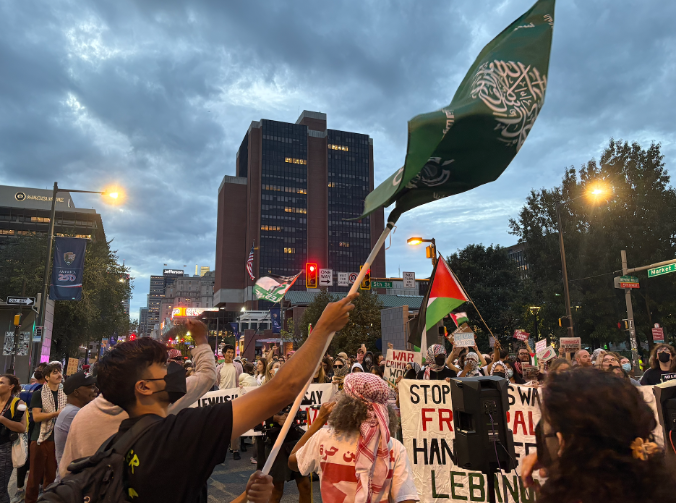
By: Lilly Werling
On October 7, 2025 over 100 peaceful protesters took to the streets of downtown Philadelphia to protest Israel’s war on Palestine, which many international experts, including the United Nations have declared a genocide. Israel has killed over 67,000 Palestinians since Hamas attacked Israel two years ago on the same day, killing 1,200 Israelis.
The protest began outside the headquarters of Day & Zimmerman on Spring Garden Street, a company that produces artillery shells used by Israel’s military.
Then, demonstrators marched through Chinatown to stop outside of the Department of Homeland Security’s ICE headquarters in Philly to show support for Philadelphia’s immigrant population.
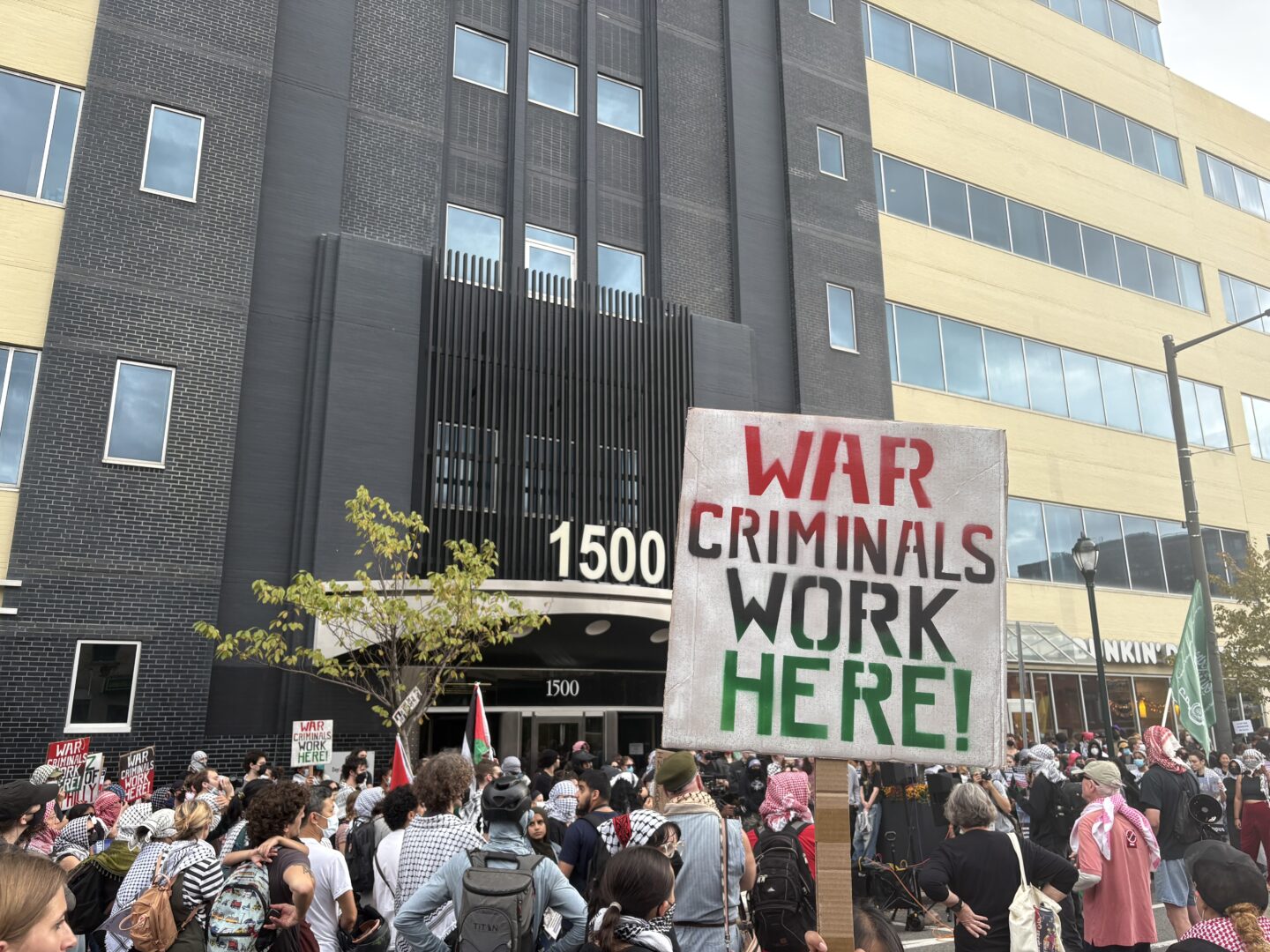
Finally, the protest ended peacefully outside the Weitzman National Museum of American Jewish History. Speakers at the rally accused the museum of providing cover for a genocide, and read a statement from the museum’s website that states, “The Weitzman strongly rejects the narrative that Israel and Zionism are colonialist enterprises, or that Israel is guilty of apartheid or genocide.”
For many pro-Palestine protesters, the past two years of activism have been marked by doxxing and new forms of digital surveillance. As a result, many protestors at the march wore masks, sunglasses, or Keffiyeh scarves to hide their faces while they attended.
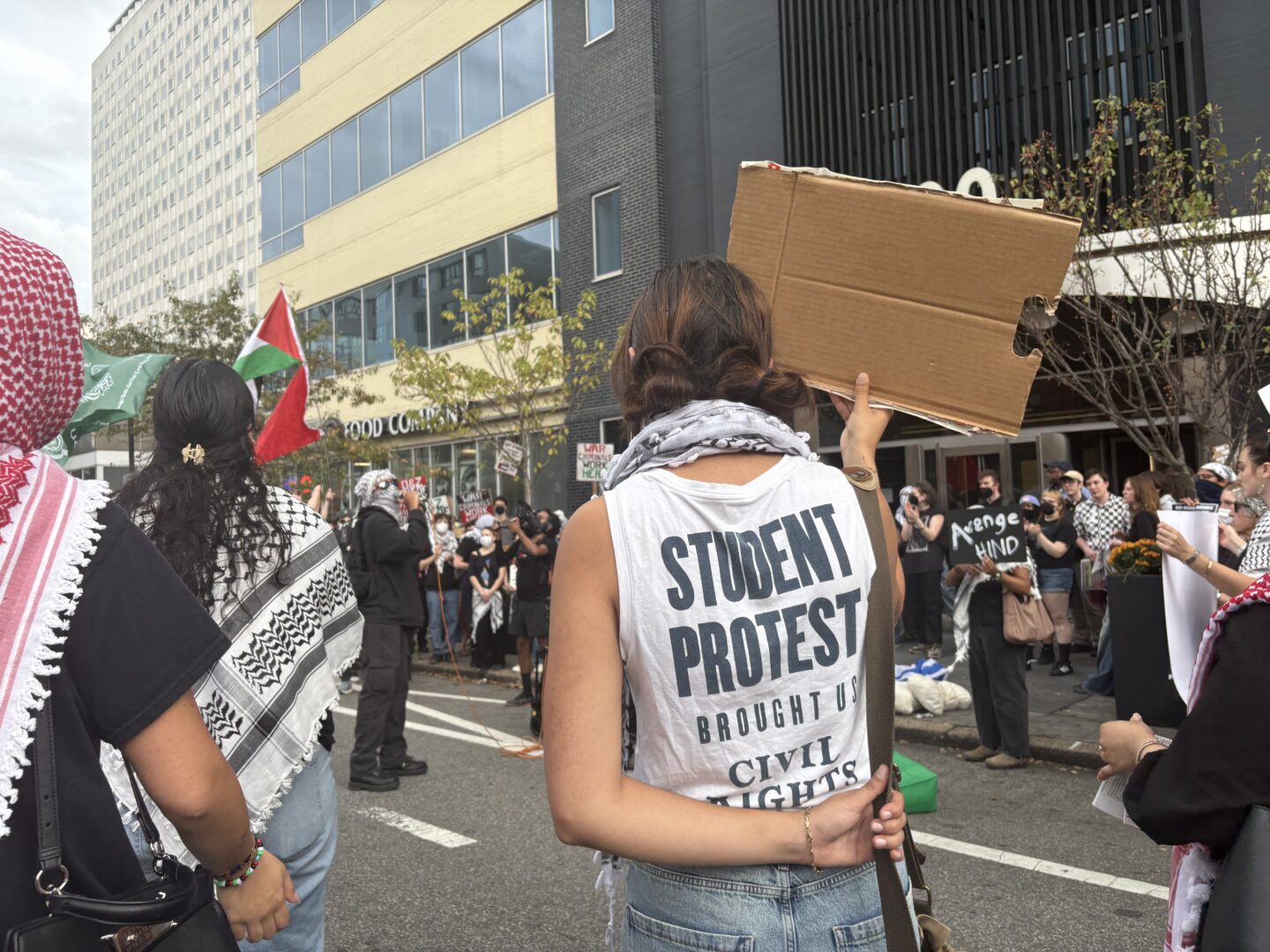
Drew is a member of the Temple Action Solidarity Coalition, which was formed at the beginning of the fall 2025 semester. It is a coalition of multiple student organizations on Temple’s campus who advocate for the university to divest funds from companies with ties to Israel, among other causes.
Drew said when Trump was elected president for the second time, they were hopeful that it would positively affect protest turnout.
“A lot of people who might have been complacent under democratic president, some people thought maybe that would drive them to come out,” Drew said.
But they also recognized that Trump’s presidency could mean increasing crackdowns on protests. Drew says that the Trump administration’s deployment of the National Guard to cities like Chicago and Los Angeles, and the increased presence of ICE across the country has instead harmed turnout.
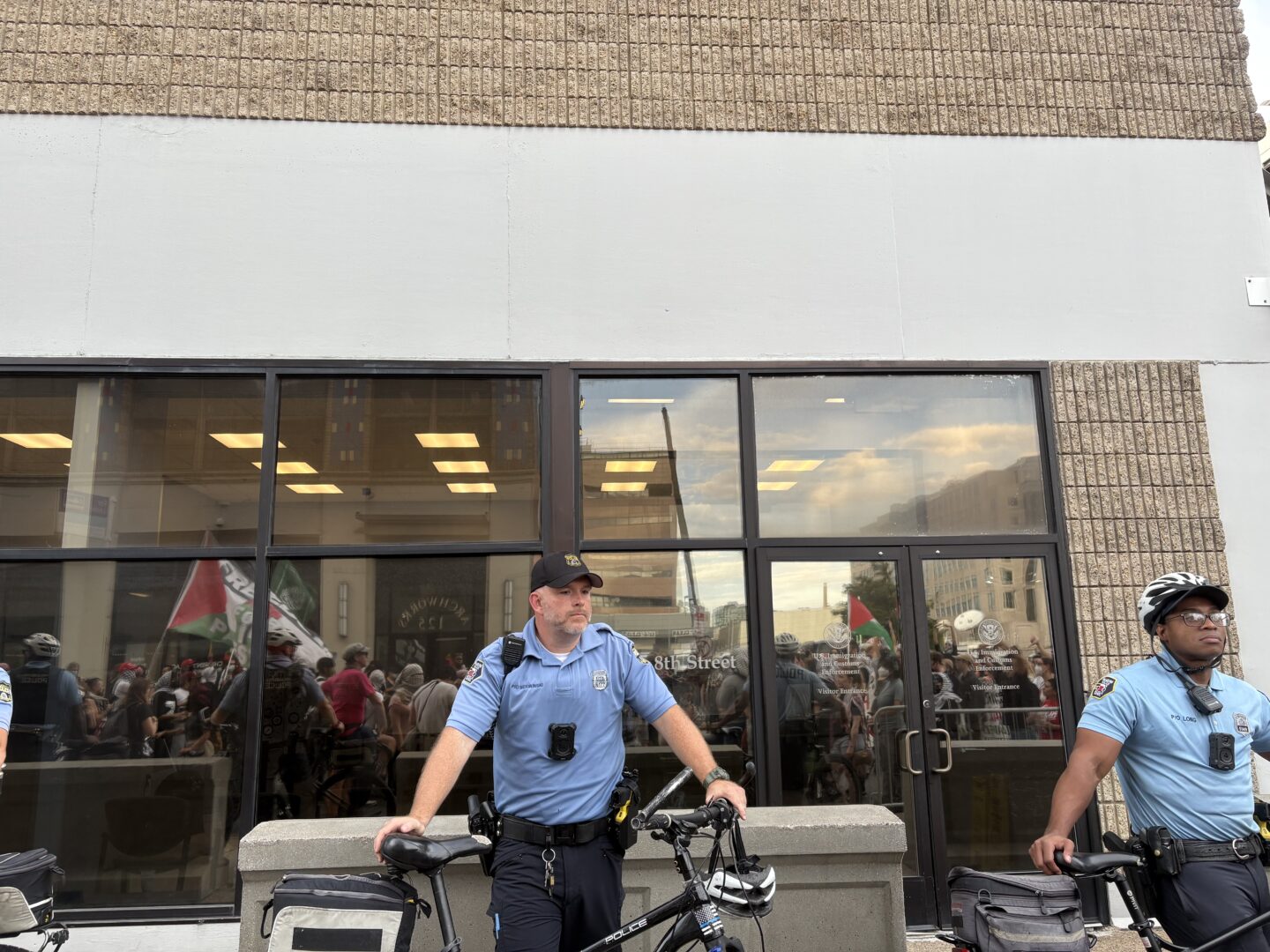
For some, that fear is very real. A college student in Philadelphia—whose name is not included for safety reasons–was doxxed earlier this year for their participation at a Pro-Palestine protest in 2024. The student’s photo, university, major, graduation year, and multiple links to their social media accounts were published to a doxxing website called Canary Mission. Additionally, the site posted photos of the student at multiple protests along with the dates and locations of those protests, which have been updated since the original upload.
“The first thing I felt after being doxxed was fear. I was scared of being harassed, I was scared I wouldn’t be able to get a job,” the student said.
But they said they weren’t alone. They had friends who had also been doxxed, and a community of people they trusted to keep them safe.
“The fear I felt was nothing compared to the fear of Palestinians in Palestine and in America, of immigrants, or of victims of targeted and nonstop smear campaigns,” the student said.
Still, Drew said cases like this have caused protesters to take more precautions.
“Wearing a mask, not wearing identifying clothing, and obviously not relinquishing personal information to people,” are a few ways to avoid online harassment campaigns, they said.
Some protesters on Tuesday even covered up their tattoos to further prevent themselves from being identified.
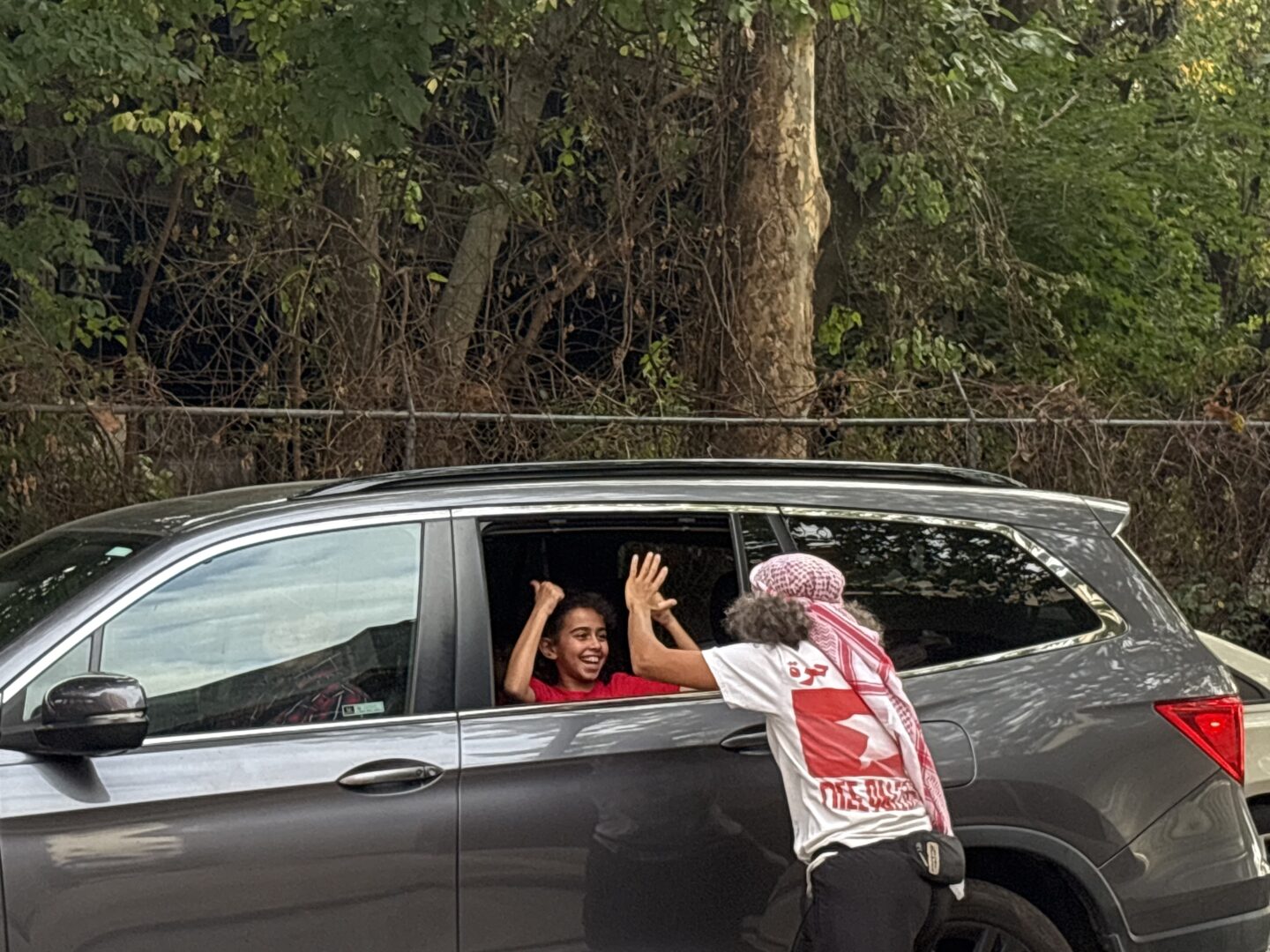
Another safety precaution that many activists have increasingly adopted is inviting legal observers to attend protests. Legal observers have been involved in U.S. protests for decades, with scholars tracing the practice back to the Black Panther Party in the 1960s. The role of legal observers is to inform protesters of their rights, monitor law enforcement behavior, and report any abuses of power.
Multiple legal observers from Up Against the Law Legal Collective were present at Tuesday’s protest.
Despite the dangers of protesting, both students expressed the belief that protest is necessary and important. Drew said they don’t expect a peaceful march like the one on October 7 to accomplish any of their main demands in the short term.
“But there were a lot of people who, that was their first time getting out and they learned a lot, they met a lot of people. And I think that’s the goal to keep that awareness high, to keep that engagement high, and to continue to build a better future,” they said.
The anonymous student shared how their experience of being doxxed changed their perspective.
“If my name and face were going to be attached to the Palestinian cause, I moved forward to represent it proudly. I learned to never give power to those who wish to silence you, and the harder they try to the louder you should be.”


Be the first to comment